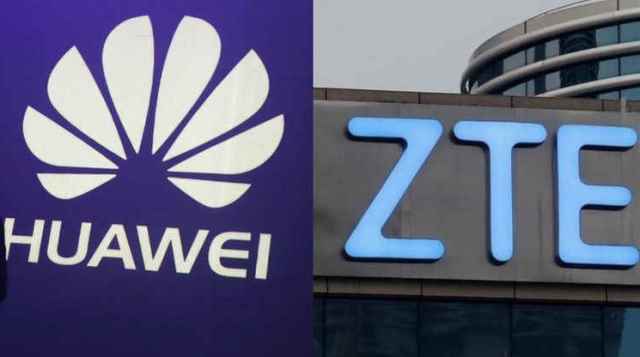China-based technology companies Huawei and ZTE are going to lose some revenue and more credibility as a result of their business with rival countries of the U.S., a Reuters report indicates.
Huawei is the latest telecom network equipment maker to face the investigation by U.S. prosecutors in New York. Prosecutors’ investigation will find whether Huawei violated U.S. sanctions in relation to Iran.
ZTE and Huawei are facing serious credibility concerns in America at a time when India and China are in the process of reducing their tensions after the meeting between their prime ministers.
China’s Huawei had faced similar issues in India as well.
Huawei, which reported lower income from the U.S. telecom market, is under investigation since at least 2016 for alleged shipping of U.S.-origin products to Iran and other countries in violation of U.S. export and sanctions laws.

The report indicates that both Huawei and ZTE could be using their wireless technology to spy on Americans – threatening the security of North America.
The development assumes significance in the wake of the ongoing trade related spat between China and the U.S. Russia is also facing allegations about its engineers posting threats to cyber security.
News of the Justice Department probe follows a series of U.S. actions aimed at stopping or reducing access by Huawei and Chinese smartphone maker ZTE to the U.S. economy amid allegations the companies could be using their technology to spy on Americans.
U.S. attorney’s office in Brooklyn is running the Justice Department probe targeting Huawei. John Marzulli, a spokesman for the prosecutor’s office, would neither confirm nor deny the existence of the investigation, the Wall Street Journal reported on Wednesday.
Huawei, the world’s largest maker of telecommunications network equipment and the No. 3 smartphone supplier, said it complies with “all applicable laws and regulations where it operates, including the applicable export control and sanction laws and regulations of the UN, US and EU.”
China’s ZTE and a rival of Huawei, is facing similar issues in America. The United States last week banned American firms from selling parts and software to ZTE for seven years. The US administration says ZTE has violated an agreement on punishing employees after the company illegally shipped U.S. goods to Iran.
ZTE, which sells smartphones in the United States, paid $890 million in fines and penalties, with an additional penalty of $300 million that could be imposed.
U.S. authorities have subpoenaed Huawei seeking information related to possible export and sanctions violations. The New York Times last April reported the U.S. Treasury’s Office of Foreign Assets Control subpoena, issued in December 2016, following a Commerce Department subpoena that summer.
Both Huawei and ZTE also have been under scrutiny by U.S. lawmakers over cybersecurity concerns.
In February, Senator Richard Burr, the Republican chairman of the U.S. Senate Intelligence Committee, cited concerns about the spread of Chinese technologies in the United States, which he called “counterintelligence and information security risks that come pre-packaged with the goods and services of certain overseas vendors.”
Huawei and ZTE have denied these allegations.
Republican Senators Marco Rubio and Tom Cotton have introduced legislation that would block the U.S. government from buying or leasing telecommunications equipment from Huawei or ZTE, citing concern that the Chinese companies would use their access to spy on U.S. officials.
In 2016, the Commerce Department made documents public that showed ZTE’s misconduct and also revealed how a second company, identified only as F7, had successfully evaded U.S. export controls.
In a 2016 letter to the Commerce Department, 10 U.S. lawmakers said F7 was believed to be Huawei, citing media reports.
In April 2017, lawmakers sent another letter to Commerce Secretary Wilbur Ross asking for F7 to be publicly identified and fully investigated.
The U.S. government’s investigation into sanctions violations by ZTE followed reports by Reuters in 2012 that the company had signed contracts to ship hardware and software from some of the best known U.S. technology companies to Iran’s largest telecoms carrier.
In January 2013, Reuters reported that a Hong Kong-based firm that attempted to sell embargoed Hewlett-Packard computer equipment to Iran’s largest mobile-phone operator has much closer ties to China’s Huawei Technologies than was previously known.





